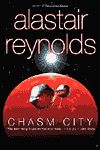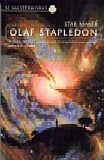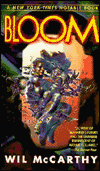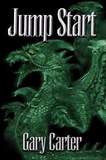
Chasm City, by Alastair Reynolds
Book Review by Lalith Vipulananthan
Have you read this book?
After the success of fellow countrymen Peter F Hamilton and Stephen Baxter, Alastair Reynolds is being hailed as the next British hard SF author to watch. His first novel Revelation Space received a lot of acclaim for coupling imagination with plausible science, but also criticism for not being able to marry these two with an engaging plot and good characterisation. Chasm City serves to redress that balance.
Set in the same universe as Revelation Space, Reynolds narrows the scope set before and concentrates on a dark, cyberpunk-ish thriller. At its heart, the story is a simple revenge tale but one made more complex by the use of multiple plot threads. Told in the first person, the story follows Tanner Mirabel, an assassin and bodyguard, recently made redundant by the murder of his employer. To atone for his failure, Mirabel vows to hunt down and kill the man responsible, Argent Reivich. However Reivich has fled to the system of Yellowstone and its capital, Chasm City. The pursuit of Reivich is dealt within the main thread and this is broken up with flashbacks to the death of Mirabel's employer. In addition, there is an imaginatively reasoned retelling of the colonisation of Sky's Edge, a tale that seems to conflict with the official record and begins to have an unsettling resonance with events in the present. And all of this within the first two chapters!
When considered in hindsight Chasm City has a noticeable number of jarring factors, but the driving force of the plot moves the reader swiftly onwards. The book's strengths lie in the vivid description of the plague-devastated city, Reynolds? delightful subversion of the generation ship trope and the characterisation of Tanner Mirabel. Mirabel is the epitome of the hardboiled tough guy. He is not a deep character and his reason for chasing Reivich has little meaning when Mirabel knows that he won?t return to Sky's Edge for thirty years, by which time everyone else connected to the event will be dead. However Mirabel's character is gradually revealed to be far more complex than at first apparent, and even he isn't entirely sure of his motivations. The gradual unravelling of Mirabel provides many of the book's prerequisite twists, some of which are predictable and some of which are simply mind-blowing.
So what of the bad points? The major one relates to the supporting characters. It would seem that after spending so much time developing Mirabel, Reynolds ran out of steam when drawing up the rest of the cast. The people that Mirabel meets in Chasm City seem to have no particular cause or driving ambition. They invariably try to kill him first and then suddenly decide to help him out in an abrupt change of heart. Added to this fact are a frightening number of coincidences that just happen to lead Mirabel in the right direction and a couple of insufficiently unexplained events. The latter point might seem picky but these events stick out purely because of the tightness of the rest of the plot. The ending is a complete anti-climax that may irritate, but Reynolds has a good reason for slowing up the pace as the threads all draw together.
There is little to dislike about this book and it would appear that Reynolds has improved dramatically since Revelation Space. His next novel Redemption Ark utilises the same setting as Revelation Space and Chasm City and is set to be truly outstanding.
Set in the same universe as Revelation Space, Reynolds narrows the scope set before and concentrates on a dark, cyberpunk-ish thriller. At its heart, the story is a simple revenge tale but one made more complex by the use of multiple plot threads. Told in the first person, the story follows Tanner Mirabel, an assassin and bodyguard, recently made redundant by the murder of his employer. To atone for his failure, Mirabel vows to hunt down and kill the man responsible, Argent Reivich. However Reivich has fled to the system of Yellowstone and its capital, Chasm City. The pursuit of Reivich is dealt within the main thread and this is broken up with flashbacks to the death of Mirabel's employer. In addition, there is an imaginatively reasoned retelling of the colonisation of Sky's Edge, a tale that seems to conflict with the official record and begins to have an unsettling resonance with events in the present. And all of this within the first two chapters!
When considered in hindsight Chasm City has a noticeable number of jarring factors, but the driving force of the plot moves the reader swiftly onwards. The book's strengths lie in the vivid description of the plague-devastated city, Reynolds? delightful subversion of the generation ship trope and the characterisation of Tanner Mirabel. Mirabel is the epitome of the hardboiled tough guy. He is not a deep character and his reason for chasing Reivich has little meaning when Mirabel knows that he won?t return to Sky's Edge for thirty years, by which time everyone else connected to the event will be dead. However Mirabel's character is gradually revealed to be far more complex than at first apparent, and even he isn't entirely sure of his motivations. The gradual unravelling of Mirabel provides many of the book's prerequisite twists, some of which are predictable and some of which are simply mind-blowing.
So what of the bad points? The major one relates to the supporting characters. It would seem that after spending so much time developing Mirabel, Reynolds ran out of steam when drawing up the rest of the cast. The people that Mirabel meets in Chasm City seem to have no particular cause or driving ambition. They invariably try to kill him first and then suddenly decide to help him out in an abrupt change of heart. Added to this fact are a frightening number of coincidences that just happen to lead Mirabel in the right direction and a couple of insufficiently unexplained events. The latter point might seem picky but these events stick out purely because of the tightness of the rest of the plot. The ending is a complete anti-climax that may irritate, but Reynolds has a good reason for slowing up the pace as the threads all draw together.
There is little to dislike about this book and it would appear that Reynolds has improved dramatically since Revelation Space. His next novel Redemption Ark utilises the same setting as Revelation Space and Chasm City and is set to be truly outstanding.
| Chasm City, by Alastair Reynolds on Amazon |
Chasm City, by Alastair Reynolds on Amazon

Comment on Chasm City, by Alastair Reynolds
| Comments on Chasm City, by Alastair Reynolds |
| There are no comments on this book. |



